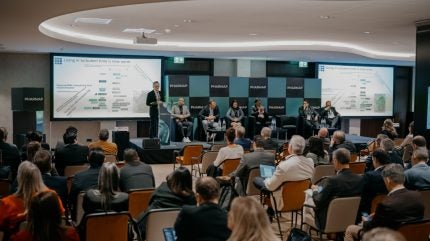
Recent research shows that the pharmaceutical industry is intensifying efforts to combat counterfeit drugs, which account for up to 30% of medicines sold globally. In a major step toward securing pharmaceutical supply chains, regulatory bodies worldwide are tightening serialisation and labelling requirements. Latest updates to the EU Falsified Medicines Directive (FMD) and the US Drug Supply Chain Security Act (DSCSA) highlight the industry’s ongoing push to enhance product authenticity and patient safety. These regulations require unique identifiers on pharmaceutical packaging, enabling end-to-end traceability across the supply chain.
While such measures are essential for preventing fraud and ensuring compliance, they also introduce operational complexities. Companies must integrate new technologies, manage increased production costs and ensure compatibility with existing packaging lines, all while keeping pace with evolving regulatory demands. With counterfeit pharmaceuticals still a major global threat, causing annual losses estimated at $200 billion worldwide, how can the industry overcome these challenges and leverage innovation to strengthen supply chain security?
Industry Leaders Taking Action
To safeguard products and maintain consumer trust, pharmaceutical companies and packaging suppliers are adopting cutting-edge technologies. For example, blockchain is being leveraged to create immutable records of a product’s journey, enhancing transparency and reducing the risk of tampering. AI-powered digital authentication solutions are also gaining traction, enabling real-time genuine product verification.
Boehringer Ingelheim, for instance, has collaborated with SAP to develop a blockchain-based application designed to track, trace and authenticate prescription medicines in the U.S. market. This initiative aims to enhance the security and integrity of their pharmaceutical supply chain.
Similarly, Vertical Integration (VI) has been adopted by Novartis to collect, store, contextualise and visualise data from equipment to users, enhancing data-driven decision-making in their manufacturing processes. This approach reflects the company’s commitment to the ethical and responsible use of AI systems.
However, the integration of these technologies often requires significant adjustments to packaging design and production processes. Companies must balance the need for advanced security features with the practicalities of high-speed manufacturing and cost efficiency. This has led to a growing demand for specialised equipment and expertise in serialisation and labelling.

US Tariffs are shifting - will you react or anticipate?
Don’t let policy changes catch you off guard. Stay proactive with real-time data and expert analysis.
By GlobalDataShowcasing Innovation at the Focus Exhibition
To support this, the Pharmaceutical Manufacturing and Packaging Congress 2025 (PHARMAP) features a Focus Exhibition, where leading companies present their latest solutions and innovations for the entire industry.
For serialisation and labelling technologies, LANGGUTH GmbH and STAKO GmbH Maschinenbau provide marking and feeding solutions tailored to packaging needs. Alongside them, CryoXpert, Innowise, Emerson, Identiv, IDOM and other leading companies showcase advancements across various branches of pharmaceutical packaging and manufacturing, offering a comprehensive view of the industry’s latest developments. The Focus Exhibition format has a limited number of stands for each segment, which allows companies to gain high visibility and establish meaningful partnerships.
A Platform for Knowledge Exchange
To further explore these industry solutions, PHARMAP 2025 features a panel discussion on tracking and identification in the pharmaceutical packaging sector. This session brings together industry leaders and government bodies, including representatives from SICPA SA, UNICEF, «CRPT TURON» LLC and Securikett, to discuss key topics such as:
- Authentication and anti-counterfeiting measures;
- Impact of serialisation on packaging design and production processes;
- Employing blockchain technology to combat counterfeiting;
- Protecting pharmaceuticals from counterfeits with AI.
This session provides valuable insights into brand protection challenges, companies’ approaches to traceability and verification and advanced anti-counterfeiting security concepts that integrate tamper-evidence with digital solutions.
From Challenges to Opportunities
As the industry seeks answers to the challenge of counterfeit drugs and supply chain security, surpassing these issues remains a priority. To overcome these problems, the industry is turning to innovations such as blockchain, AI-powered authentication and advanced serialisation technologies, which are helping to improve traceability and reduce fraud. While implementing these advancements requires overcoming operational complexities, they also present opportunities to enhance efficiency, transparency and trust throughout the supply chain. At PHARMAP 2025 (14-15 April in Berlin), industry leaders examine these challenges, exchange insights and explore innovative solutions that drive the pharmaceutical sector toward improved safety and reliability.



